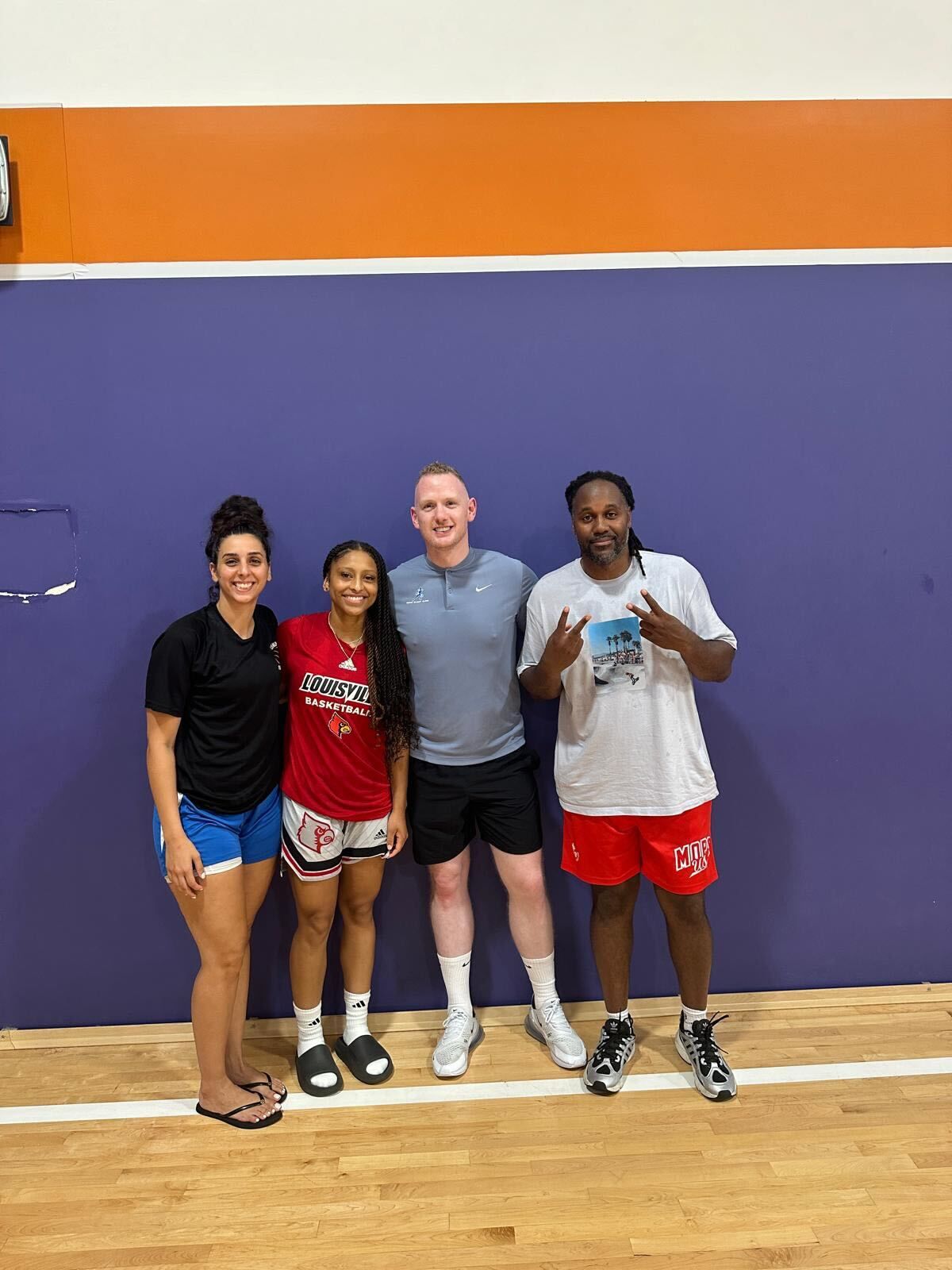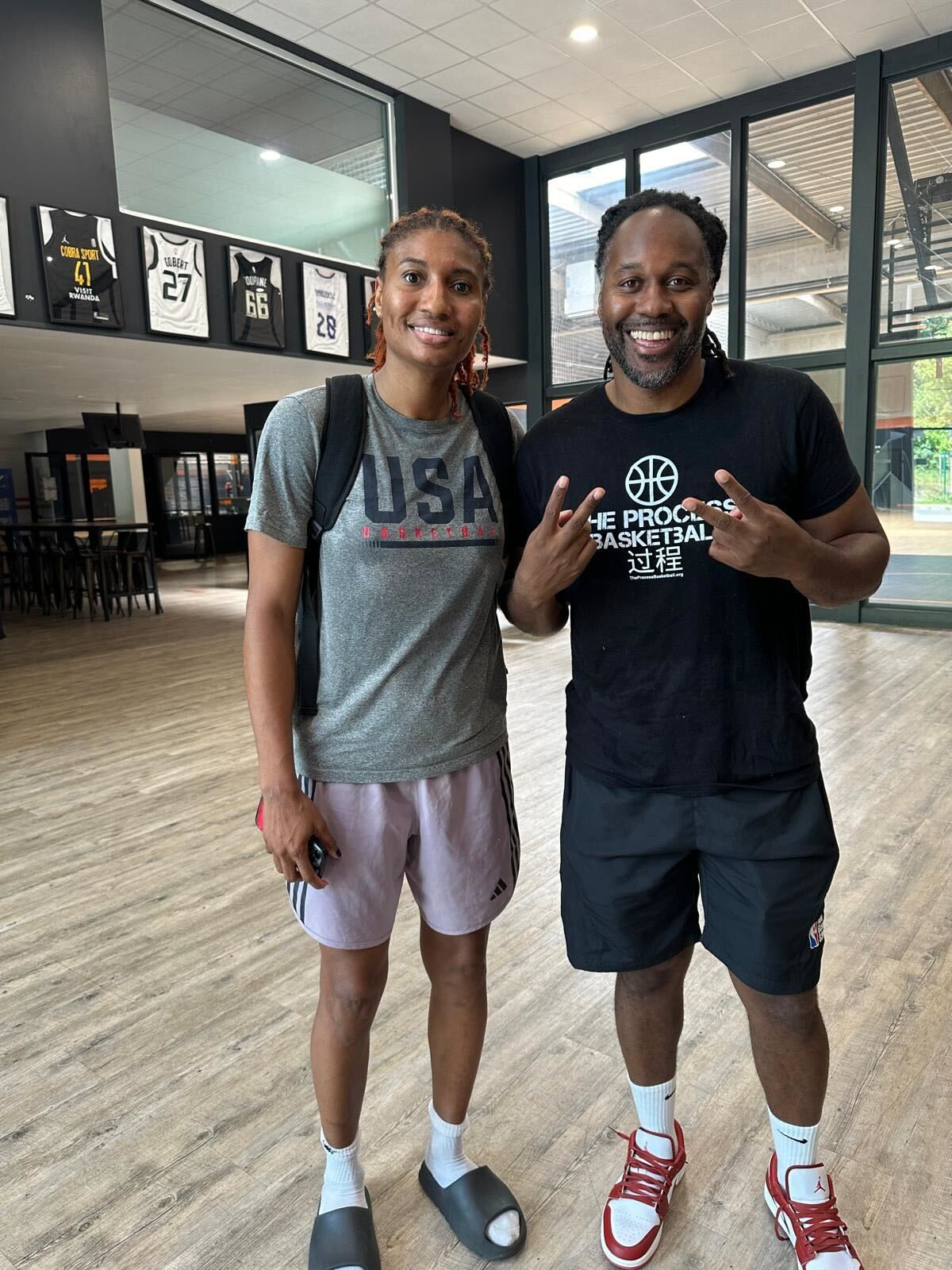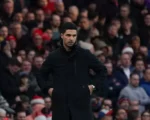Something special is happening at the University of Louisville this year.
It’s a little unprecedented, and brings together people from five countries in pursuit of the same goal: to continue to elevate women’s basketball and to propel Louisville’s women’s program to the furthest heights head coach Jeff Walz and his team can go. (After all, it’s a special year for people with the last name Walz, isn’t it?)
This summer, Louisville guard Jayda Curry left preseason training at school to go to France for three weeks. If you’re asking yourself how many college basketball players get permission to do something like that, you’re not wrong to do so—it’s pretty unheard of. But Curry is heading into what will likely be her fourth and final year on a college court, and there are four letters at the end of this season that she’s planning to touch: WNBA.
Curry wasn’t in France to see the Eiffel Tower, shop on the Champ-Élysées or even to go to the Olympics, though she actually did all three of those things during her down time. She was there to take part in developmental coach Tremaine Dalton’s We Play Too program, which is designed to build women’s basketball players in three ways: on the court, off the court and through mentorship pairings with professional athletes.
Dalton, the Technical Director of Portugal’s NBA Basketball School, turned his attention to women’s basketball a few years ago. Even women who play in the WNBA do so without the options their male counterparts have. As fans of the women’s game know, the salary cap per team is $1.46 million, just over the NBA individual player minimum of $1.16 million. Athletes who are lucky enough to get drafted and keep their spot on a team all season still find themselves looking for opportunities overseas during the offseason. There are a lot of exciting changes happening in the sport that are addressing this problem. Unrivaled, the 3×3 league co-founded by Breanna Stewart and Napheesa Collier, will debut in January and players are expected to earn around a cool $250,000. But that’s still one league with spots limited to 30 players.
Women athletes have to look at their off-the-court options, too. Something that sets Dalton’s program apart is that he’s specifically focused on exactly that. Curry landed in Paris and hit the court. As part of the program, Curry was paired with Arab-Israeli player Shahd Abboud, current guard with the Leiceter Riders in England, who worked with her as a mentor for three weeks. The two women bonded immediately, something that Abboud appreciated and took seriously. Abboud explained:
I think having a mentor to guide you through your basketball journey is really important. There’s a lot of ups and downs in basketball, and there are lots of changes as you grow in the game. To have someone who can mentally prepare you and be there for you can be very beneficial.
“I loved the friendship me and Jayda formed immediately since the first day I met her,” she added. “I appreciate her trusting me and coming to me throughout this whole process, and I hope I was able to help her.”
Part of Dalton’s program is about approaching the physical aspect of basketball in new ways, especially when it comes to old injuries that still rear their head. Physiotherapist David Roche, who runs his own clinic in Kilkenny, Ireland, joined the team for a week in Cannes, where he worked with Curry to resolve issues with planar facilities that she’s battled for years. His process included “re-engineering her movement pattern,” which resulted in gains in as little as three days.

The team at Portugal’s NBA Basketball School is also a core part of Dalton’s program. Through the school, Dalton and the coaches are reaching more young players—especially more young women players—than ever before. There is no doubt this is due to the rise in popularity of players like Angel Reese and Caitlin Clark, whose reputations certainly precede them in basketball spaces around the world, and it’s also due to what’s finally being collectively recognized: Women’s basketball is just as fun as men’s (and maybe even more so).
And finally, a crucial component of We Play Too is recognizing that hoop can’t be everything. Off-the-court professional development is baked in. Curry was also in the middle of a broadcast journalism internship in Louisville when she left for France, and was able to spend part of her time in the country finishing out her schoolwork. She even landed a stunning interview with Dawn Staley as a result.
So how does this tie into Louisville? Besides the obvious (that is Curry’s team and all), Dalton and Curry will continue their work together this season, with regular training sessions and even trips abroad (Louisville will kick off its season this fall with an opener in Paris against UCLA). And they’ll be joined by one of Louisville’s own: two-time Olympian and former Cardinal Angel McCoughtry, who connected with Dalton in France during the Olympics and immediately jumped onboard. All this training will take place in at the KFC Yum! Center in Louisville.

While it’s tempting to focus on the many ways women’s basketball (and women’s sports in general) has been held back, or on the disadvantages that women’s teams and athletes still face each day, there’s something powerful about deliberately looking for the people and programs who are creating more opportunities for young women that will benefit them for years to come, in the WNBA and beyond. The lack of attention historically given to women’s basketball is frustrating, but also has opened up space for creative thinkers and culture shifters to do the work they do best: make real, effective, sustainable change.
So now all that’s left is for Curry and the Cardinals to hit—and to let basketball do the rest.






